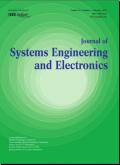Multi-Network-Region Traffic Cooperative Scheduling in Large-Scale LEO Satellite Networks
IF 2.1
3区 计算机科学
Q3 AUTOMATION & CONTROL SYSTEMS
引用次数: 0
Abstract
A low-Earth-orbit (LEO) satellite network can provide full-coverage access services worldwide and is an essential candidate for future 6G networking. However, the large variability of the geographic distribution of the Earth's population leads to an uneven service volume distribution of access service. Moreover, the limitations on the resources of satellites are far from being able to serve the traffic in hotspot areas. To enhance the forwarding capability of satellite networks, we first assess how hotspot areas under different load cases and spatial scales significantly affect the network throughput of an LEO satellite network overall. Then, we propose a multi-region cooperative traffic scheduling algorithm. The algorithm migrates low-grade traffic from hotspot areas to coldspot areas for forwarding, significantly increasing the overall throughput of the satellite network while sacrificing some latency of end-to-end forwarding. This algorithm can utilize all the global satellite resources and improve the utilization of network resources. We model the cooperative multi-region scheduling of large-scale LEO satellites. Based on the model, we build a system testbed using OMNET++ to compare the proposed method with existing techniques. The simulations show that our proposed method can reduce the packet loss probability by 30% and improve the resource utilization ratio by 3.69%.大规模低地轨道卫星网络中的多网区流量合作调度
低地轨道(LEO)卫星网络可在全球范围内提供全覆盖接入服务,是未来 6G 网络的重要候选方案。然而,地球人口地理分布的巨大差异导致接入服务的业务量分布不均。此外,卫星资源的限制也远远不能满足热点地区的流量需求。为了提高卫星网络的转发能力,我们首先评估了不同负载情况和空间尺度下的热点区域如何显著影响低地轨道卫星网络的整体网络吞吐量。然后,我们提出了一种多区域协同流量调度算法。该算法将热点区域的低等级流量迁移到冷点区域进行转发,在牺牲部分端到端转发延迟的同时,显著提高了卫星网络的整体吞吐量。该算法可充分利用全球卫星资源,提高网络资源的利用率。我们建立了大规模低地轨道卫星多区域协同调度模型。在此基础上,我们利用 OMNET++ 构建了一个系统测试平台,将我们提出的方法与现有技术进行了比较。仿真结果表明,我们提出的方法可以降低 30% 的丢包概率,提高 3.69% 的资源利用率。
本文章由计算机程序翻译,如有差异,请以英文原文为准。
求助全文
约1分钟内获得全文
求助全文
来源期刊

Journal of Systems Engineering and Electronics
工程技术-工程:电子与电气
CiteScore
4.10
自引率
14.30%
发文量
131
审稿时长
7.5 months
期刊介绍:
Information not localized
 求助内容:
求助内容: 应助结果提醒方式:
应助结果提醒方式:


